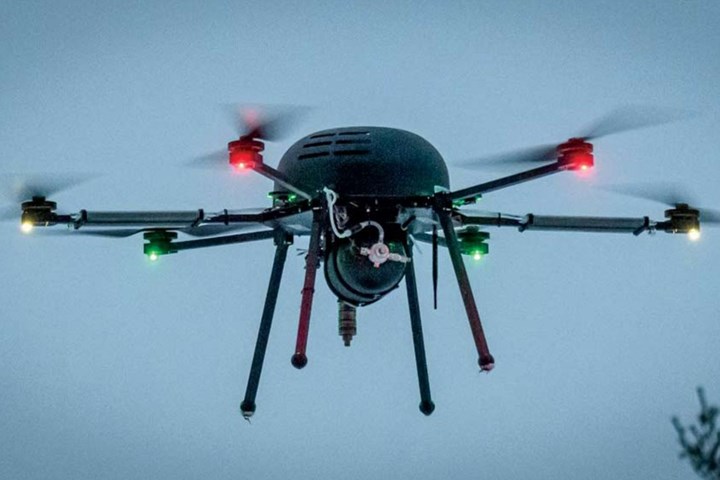Honeywell brings UAM fuel cell expertise in-house
After setting up a business dedicated to urban air mobility, and opening a dedicated R&D lab, Honeywell has now acquired the assets of fuel cell manufacturer Ballard Unmanned Systems.

Photo Credit: Honeywell
It was reported in October that Honeywell International (Charlotte, N.C., U.S.) has acquired the key intellectual property, inventory and equipment of Ballard Unmanned Systems (Southborough, Mass., U.S.), which designs and produces stored-hydrogen proton exchange membrane fuel cell systems that power unmanned aerial systems (UAVs), and has taken on its team of fuel-cell experts.
According to Honeywell, fuel cells use the chemical energy of hydrogen or another fuel to cleanly and efficiently produce electricity. Unmanned aerial systems powered by fuel cells can fly longer distances, are quiet and have zero greenhouse gas emissions.
Ballard Unmanned Systems' fuel cell power systems are said to be able to run up to three times longer than batteries and are five times more reliable than small engines. Furthermore, unlike traditional gas engines that have carbon emissions, they use hydrogen.
With the added capabilities of Ballard Unmanned Systems, Honeywell intends to introduce a family of fuel cell power systems for a variety of unmanned aerial system (UAS) vehicles. Honeywell will also collaborate with Ballard Power Systems on broader aviation applications.
Honeywell offers certification expertise as well as a full line of avionics, propulsion and operational systems for unmanned aircraft and UAM vehicles. In June, the company launched a business dedicated to UAS and UAM. Additionally, in September, Honeywell opened a new research and development lab to demonstrate the company's technological capabilities in both hardware and software for the UAS and UAM markets.
"Adding Ballard Unmanned Systems to the Honeywell family is another example of our commitment to invest in the growing UAS segment," says Mike Madsen, president and chief executive officer, Honeywell Aerospace. "We can now begin producing top-quality, scalable power systems for our UAS customers and eventually adapt these systems for other future aerospace, defense and adjacent segment applications."
Related Content
-
Prepreg compression molding supports higher-rate propeller manufacturing
To meet increasing UAV market demands, Mejzlik Propellers has added a higher-rate compression molding line to its custom CFRP propeller capabilities.
-
Joby flies two eVTOL aircraft simultaneously in testing milestone
The latest in the company’s flight testing program targets certification testing acceleration and support of its passenger-carrying goals by 2026.
-
Archer completes construction of high-volume manufacturing facility for Midnight eVTOL aircraft
Tooling load-in is already underway ahead of the planned start of initial production beginning early 2025, while Stellantis and Archer work to finalize the exclusive contract agreement.
















